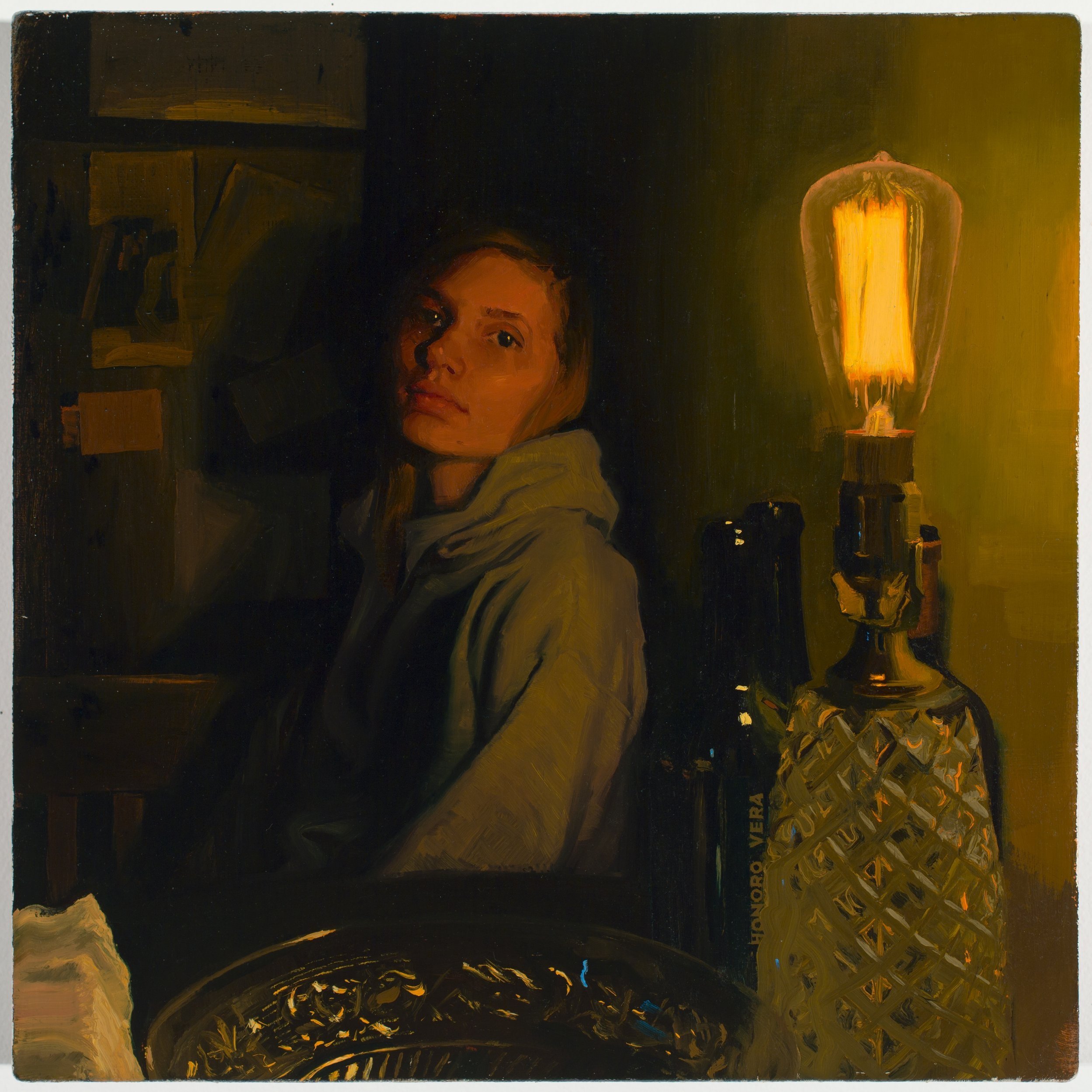Friday Links
Katie at Dinner Table, October–November by Caleb Kortokrax from our Candlemas issue
Ian McGilchrist: Resist the Machine Apocalypse
Catholics Need Poetry
Bishop Varden: ‘By climbing we learn to pray’
Nayeli Riano: T.S. Eliot and Reconversion on Ash Wednesday
Ryan Wilson at Catholic Literary Arts on Running a Literary Magazine
Raffaella: A New Fairytale Ballet
Ian McGilchrist: Resist the Machine Apocalypse
This essay is a great introduction to McGilchrist’s work, work we should all be paying attention to.
Leaving nuance aside, and condensing three decades of research and a vast body of supporting evidence into a phrase: We are now mesmerized by the least intelligent part of the human brain. For reasons of survival, one hemisphere of the brain, the left, has evolved over millions of years to favor manipulation—grabbing, getting, and controlling—while the other, the right, has been tasked with understanding the whole picture. So conflicting are these goals that in humans the hemispheres are largely sequestered, one from the other. Our seeming ability these days to hear only what comes from the left hemisphere does not arise from the brain’s having changed radically in the last couple of centuries, though it is indeed always evolving.
Catholics Need Poetry
All that is out of reach, unfathomable, impossible, is grasped by the Word who was there at the beginning. This is hardly hyperbole because God made man in his own image and bestowed him with the same power in a lesser degree, as evidenced in his naming of the animals. In fact, by virtue of his own created nature, the human person is a poem all his own; his existence is a particular expression of a concrete but mysterious act of God that takes form in his individual vocation. This reveals why all people, especially Catholics, need poetry and lack something essential without it, because their vision of reality is ipso facto hindered by not enunciating what occurs at the ground of our being. We become, as T.S. Eliot said, “hollow men.”
Bishop Varden: ‘By climbing we learn to pray’
Luke Coppen speaks with Bishop Varden about St. John Climacus’s The Ladder of Divine Ascent. This is an excellent interview. Bishop Varden offers practical spiritual advice and encouragement. Please read the whole thing and consider reading “The Ladder of Divine Ascent this Lent.
Nayeli Riano: T.S. Eliot and Reconversion on Ash Wednesday
This triumph of faith that we considered to be the end-result of a full conversion does not come in “Ash-Wednesday.” That it may never fully come, but that we must continue in our struggle despite this fact, is one of the poem’s lingering lessons. Through Eliot’s spiritual struggle we see a reflection of our own struggles, which are checked by faith and knowledge in death. Our time on earth is what Eliot calls “the time of tension between dying and birth” (212), but notice how Eliot does not begin with birth, as we would most intuitively think. Surely, birth comes before death?
Ryan Wilson at Catholic Literary Arts on Running a Literary Magazine
What is a literary magazine and how does it run? Why is it important? These questions and others will be answered throughout this class by Ryan Wilson, Editor-in-Chief of Literary Matters. Over the course of three sessions, Mr. Wilson will explain the administrative side of running a literary magazine, the editing process, and helpful steps to begin setting up your own magazine, or working for such a magazine.
Under the direction of Mr. Wilson, students will be encouraged to research other literary magazines in order to guide their understanding of the process. Whether you wish to work in editorial, communications, fundraising, or on the board of a literary magazine, you will glean important considerations for your current or future work.
If you’re an author desiring a better understanding of the literary journal environment, you’ll benefit also.
Raffaella: A New Fairytale Ballet
Raffaella is a new fairytale ballet commissioned by the Stroik family, in memory of their daughter, Raffaella Stroik. Inspired by her life, this all-new full-length ballet follows the lineage of classical ballets such as Giselle and The Sleeping Beauty and seeks to embody Raffaella's motto, "Beauty will save the world.” The narrative follows a young peasant girl from a miraculous birth in 18th century Italy. During her adventures she meets a mysterious Prince, and later a charming but false Prince, and she must choose which way to go. Featuring a new score by neo-traditional composer Michael Kurek, new choreography by former New York City Ballet Soloist Claire Kretzschmar, the artists of the South Bend Symphony Orchestra, and a corps of professional dancers from across the nation, Raffaella is set to be unmatched in scope and history. Expect to be transformed by beauty in motion. More information about the June 29, 2024 performance at Morris Auditorium in South Bend is available at the link.


